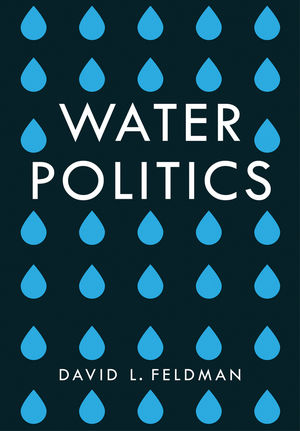
Water Politics
Governing Our Most Precious Resource
Seiten
2017
Polity Press (Verlag)
978-1-5095-0461-9 (ISBN)
Polity Press (Verlag)
978-1-5095-0461-9 (ISBN)
As the world faces another water crisis, it is easy to understand why this precious and highly-disputed resource could determine the fate of entire nations. In reality, however, water conflicts rarely result in violence and more often lead to collaborative governance, however precarious.
In this comprehensive and accessible text, David Feldman introduces readers to the key issues, debates, and challenges in water politics today. Its ten chapters explore the processes that determine how this unique resource captures our attention, the sources of power that determine how we allocate, use, and protect it, and the purposes that direct decisions over its cost, availability, and access. Drawing on contemporary water controversies from every continent from Flint, Michigan to Mumbai, Sao Paulo, and Beijing the book argues that cooperation and more equitable water management are imperative if the global community is to adequately address water challenges and their associated risks, particularly in the developing world. While alternatives for enhancing water supply, including waste-water re-use, desalination, and conservation abound, without inclusive means of addressing citizens' concerns, their adoption faces severe hurdles that can impede cooperation and generate additional conflicts.
In this comprehensive and accessible text, David Feldman introduces readers to the key issues, debates, and challenges in water politics today. Its ten chapters explore the processes that determine how this unique resource captures our attention, the sources of power that determine how we allocate, use, and protect it, and the purposes that direct decisions over its cost, availability, and access. Drawing on contemporary water controversies from every continent from Flint, Michigan to Mumbai, Sao Paulo, and Beijing the book argues that cooperation and more equitable water management are imperative if the global community is to adequately address water challenges and their associated risks, particularly in the developing world. While alternatives for enhancing water supply, including waste-water re-use, desalination, and conservation abound, without inclusive means of addressing citizens' concerns, their adoption faces severe hurdles that can impede cooperation and generate additional conflicts.
David L. Feldman is Professor of Planning, Policy, and Design at the University of California, Irvine
Foreword
Figures and tables
Chapter 1: Why Water Politics Matters
Chapter 2: Contested Waters: The Politics of Supply
Chapter 3: Clean, Green, and Costly: Water Quality
Chapter 4: The Water-Energy-Food Nexus
Chapter 5: Drought, Flood, and Everything In-Between
Chapter 6: Water Rights and Water Wrongs
Chapter 7: International Cooperation
Chapter 8: Water Conflicts
Chapter 9: Tapping into Toilets: New Sources of Water
Chapter 10: Toward a Water Sensitive Future
Glossary
References
Index
| Erscheinungsdatum | 29.01.2017 |
|---|---|
| Verlagsort | Oxford |
| Sprache | englisch |
| Maße | 168 x 246 mm |
| Gewicht | 635 g |
| Themenwelt | Naturwissenschaften ► Biologie ► Ökologie / Naturschutz |
| Naturwissenschaften ► Geowissenschaften ► Geografie / Kartografie | |
| Sozialwissenschaften ► Politik / Verwaltung ► Staat / Verwaltung | |
| Sozialwissenschaften ► Politik / Verwaltung ► Vergleichende Politikwissenschaften | |
| ISBN-10 | 1-5095-0461-3 / 1509504613 |
| ISBN-13 | 978-1-5095-0461-9 / 9781509504619 |
| Zustand | Neuware |
| Haben Sie eine Frage zum Produkt? |
Mehr entdecken
aus dem Bereich
aus dem Bereich


